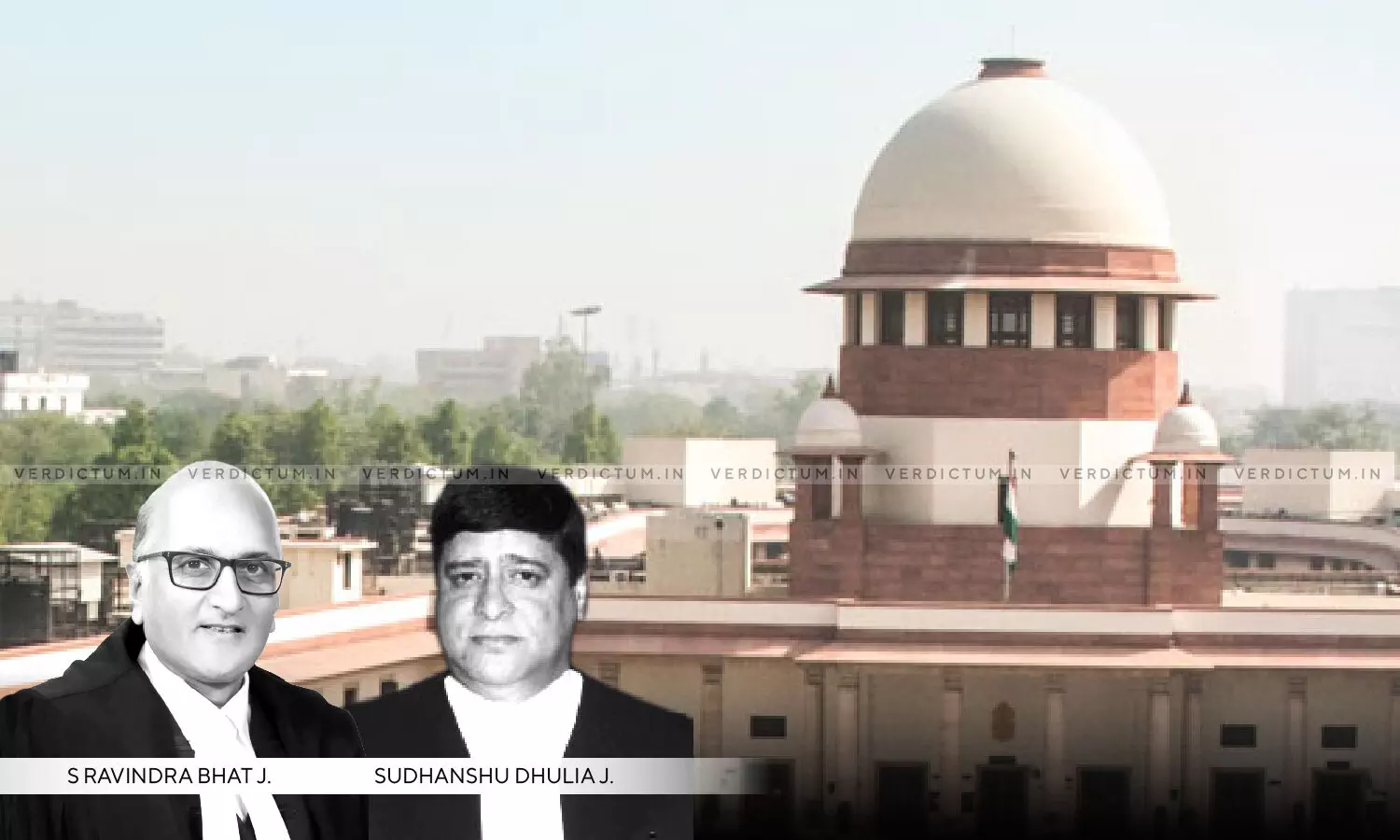
Second Dying Declaration Only Piece Of Evidence Naming Deceased's Husband: SC While Acquitting Man In A Cruelty Case
 |
|The Supreme Court while dealing with an appeal filed by the appellant i.e., the husband of the deceased being aggrieved by his conviction under Section 498A of the Indian Penal Code (IPC) and the sentence imposed upon him acquitted him on the fact that the second dying declaration is the only piece of evidence which names the appellant as one of the perpetrators of cruelty on the deceased along with the other accused.
The Bench of Justice S. Ravindra Bhat and Justice Sudhanshu Dhulia stated –
"The principles enunciated by the decision of this court, especially Laxman and the decisions dealing with multiple dying declarations, adduced in the course of a criminal trial, especially where the deceased had been a victim of burns and had succumbed to burn injuries and had prior to death made more than one dying declaration have indicated that test of credibility having regard to the overall facts on record, has to be adopted. This court notices that the present is a case where the second dying declaration has been rejected completely by the High Court. In these circumstances, the cumulative weight of evidence relied upon by the High Court needs to be examined to ascertain whether the appellant is guilty of the offence he stands convicted for, i.e., Section 498A IPC. Ex. P-26, the second dying declaration is the only piece of evidence which names the appellant as one of the perpetrators of cruelty on the deceased along with the other accused."
Advocate Divyakant Lahoti appeared on behalf of the appellant while Advocate Yashraj Singh Bundela represented the respondent i.e., the State.
In the present case, the information was received from the hospital that a woman had been brought there by her husband i.e., the appellant in a burnt condition. At the request of Police Station Ashok Nagar, Guna, M.P., the medico-legal certificate (MLC) of the injured was issued. Her dying declaration was recorded. Some burnt clothes smelling of kerosene oil, one chimani, one broken mangalsutra smelling of kerosene oil, and a matchbox containing 3-4 match sticks were seized. A spot map too was prepared and the statements of witnesses were recorded. A post-mortem was conducted and the seized articles were sent for FSL. Police, after completing the investigation filed the charge sheet against the appellants for offence under Sections 302, 307, 304B, 498A/34 of the IPC and under Sections 3 and 4 of the Dowry Prohibition Act.
The Trial court framed charges against the remaining accused and the prosecution examined 15 witnesses. The trial court, by the impugned judgments, convicted and sentenced the appellant and other accused for the offence under Section 498A IPC. The appellant and the other accused challenged their conviction and sentence before the Madhya Pradesh High Court. The High Court, by the impugned order, rejected their appeals. Hence, the matter was before the Supreme Court.
The counsel for the appellant urged before the Apex Court that the courts fell into error in relying on the dying declaration by the deceased. Whereas, the counsel for the State argued that no interference with the concurrent findings of the courts is called for and that the appeal involves an appreciation of evidence. The Court in this context noted, "… whether it is essential to have medical certification before the statement is recorded, who records it, etc. are all fact dependent, and no stereotypical approach can be adopted by courts."
The Supreme Court further noted that it is necessary to consider the evidentiary value of the dying declaration which was relied on by the prosecution to convict the appellant.
The Court, therefore held, "Undoubtedly, the focus of the first dying declaration is only upon the incident involving pouring of kerosene and setting the deceased on fire. The second dying declaration, Ex. P-26 alone elaborates acts of cruelty. That is the only piece of incriminating evidence against the accused. As far as the recovery of articles and the smell of kerosene in the report considered by the court are concerned, they are circumstances relating to the incident of setting the deceased on fire. They do not further the prosecution's case under Section 498A as against the appellant. Having regard to the above circumstances, especially the fact that the only evidence against the appellant, i.e., Ex. P-26 was discredited by the High Court, there is no other material to sustain his conviction."
Accordingly, the Apex Court set aside the impugned judgment and acquitted the appellant.
Cause Title – Rajaram v. State of Madhya Pradesh & Ors.
Click here to read/download the Judgment